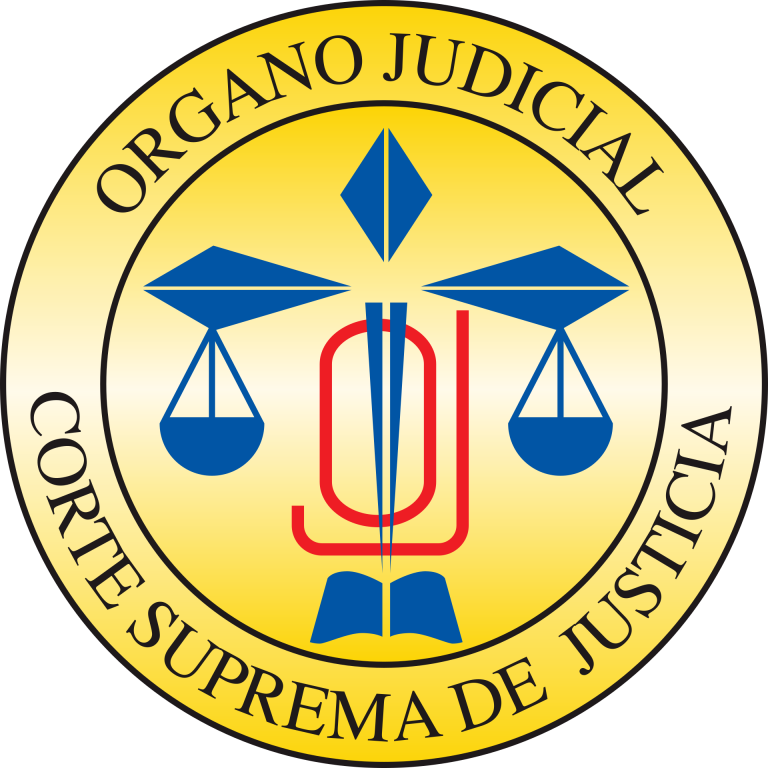
Supreme Court of Justice of El Salvador (Spanish: Corte Suprema de Justicia de El Salvador). The highest court in the judicial system of El Salvador. It serves as the final arbiter of legal disputes and is responsible for interpreting the Constitution and ensuring that laws are applied uniformly across the country. The court plays a critical role in upholding the rule of law and protecting the rights of citizens in El Salvador.
History
The Supreme Court of El Salvador was established on April 21, 1825, shortly after the country gained independence from Spain as part of the Central American Republic. The National Congress appointed its first justices, with Tomás O’Horán, a prominent attorney from Yucatán, serving as its inaugural president. The court officially began its work on April 25, 1825.
Throughout its history, the Supreme Court has evolved in response to El Salvador‘s changing political and social landscape. A significant turning point came after the Salvadoran Civil War (1979–1992). Following the 1992 Peace Accords, judicial reforms were introduced to strengthen the judiciary. The Commission on the Truth for El Salvador and the Ad Hoc Commission recommended replacing all Supreme Court judges in 1994 to address issues of corruption and inefficiency, marking a major overhaul of the institution.
Structure
The Supreme Court consists of 15 justices, including a president who also heads the judicial branch. The court is organized into four specialized chambers:
- Constitutional Chamber: Addresses constitutional disputes, reviews the constitutionality of laws, and handles cases involving amparo (protection of constitutional rights) and habeas corpus.
- Civil Chamber: Oversees civil and commercial litigation.
- Criminal Chamber: Manages criminal appeals and cases.
- Administrative Chamber: Deals with administrative law and contentious-administrative disputes.
Justices are appointed by the Legislative Assembly for nine-year terms, with their performance reviewed every three years. Appointments require a two-thirds majority vote. The legislature also selects the court’s president, who leads both the Supreme Court and the Constitutional Chamber, as stipulated in the 1983 Constitution of El Salvador.
Eligibility criteria for justices include:
- Being Salvadoran by birth.
- Being over 40 years old.
- Having served as a Second Instance Magistrate for six years, a First Instance Magistrate for nine years, or having practiced law for at least ten years.
Clergymen are barred from serving as justices.
Functions and Powers
The Supreme Court holds extensive authority within El Salvador’s judicial system. Its primary functions include:
- Hearing appeals from lower courts.
- Resolving constitutional disputes and reviewing the constitutionality of laws, decrees, and government actions.
- Overseeing the administration of the judicial system, including appointing and removing lower court judges.
The Constitutional Chamber is particularly significant, acting as a check on the legislative and executive branches by ensuring that their actions align with the Constitution. The court’s decisions have far-reaching implications for governance and the protection of human rights in El Salvador.
Notable Cases
The Supreme Court has adjudicated several landmark cases that have influenced Salvadoran law and society. Key examples include:
- Abortion Law Ruling (2016): The court ruled that El Salvador’s strict abortion laws violated women’s rights, sparking widespread debate and calls for legislative reform. This decision underscored the ongoing tension between traditional values and human rights advocacy.
- Anti-Gang Measures: The court upheld the constitutionality of government policies targeting gang violence, reflecting the delicate balance between public security and civil liberties in a country plagued by high crime rates.
- Presidential Re-Election Ruling (2021): In a controversial decision, the Constitutional Chamber permitted presidents to seek consecutive re-election, enabling President Nayib Bukele to run again in 2024. Critics argued this ruling undermined democratic principles.
- El Espino ruling (1987). This case involved the 2,000-acre El Espino estate, originally confiscated in 1980 under a land reform program designed to redistribute land to peasants during a period of social unrest. The estate belonged to the Dueñas family, one of El Salvador’s wealthiest and most influential families. In its 1987 ruling, the Supreme Court determined that the El Espino estate was located within urban San Salvador, thus exempting it from the land reform provisions. As a result, the court ordered the property returned to the Dueñas family.
Controversies and Criticisms
The Supreme Court has faced persistent criticism over its judicial independence. The appointment process, reliant on legislative approval, has led to accusations of politicization, with justices sometimes perceived as beholden to political interests rather than the rule of law.
Recent controversies include:
- Dismissal of Constitutional Chamber Judges (2021): In May 2021, the Legislative Assembly, dominated by allies of President Bukele, dismissed all five Constitutional Chamber justices and the Attorney General, replacing them with loyalists. This action was widely denounced as an attack on judicial independence.
- Mandatory Retirement Laws (2021): In August 2021, a new law forced judges and prosecutors over 60 years old or with 30 years of service to retire, allowing the Supreme Court to appoint replacements. Critics viewed this as a power grab by the executive branch.
- Delays and Inconsistencies: The court has been faulted for slow case resolutions and inconsistent rulings, eroding public trust in the judiciary.
Current Status
As of 2023, the Supreme Court is led by President Óscar Alberto López Jerez. The court remains a pivotal institution in El Salvador, tackling complex legal issues amid efforts to modernize the judicial system. Recent initiatives have focused on improving efficiency and transparency, such as adopting technology to reduce case backlogs and enhance access to justice. However, challenges persist, particularly concerning political influence and restoring public confidence.